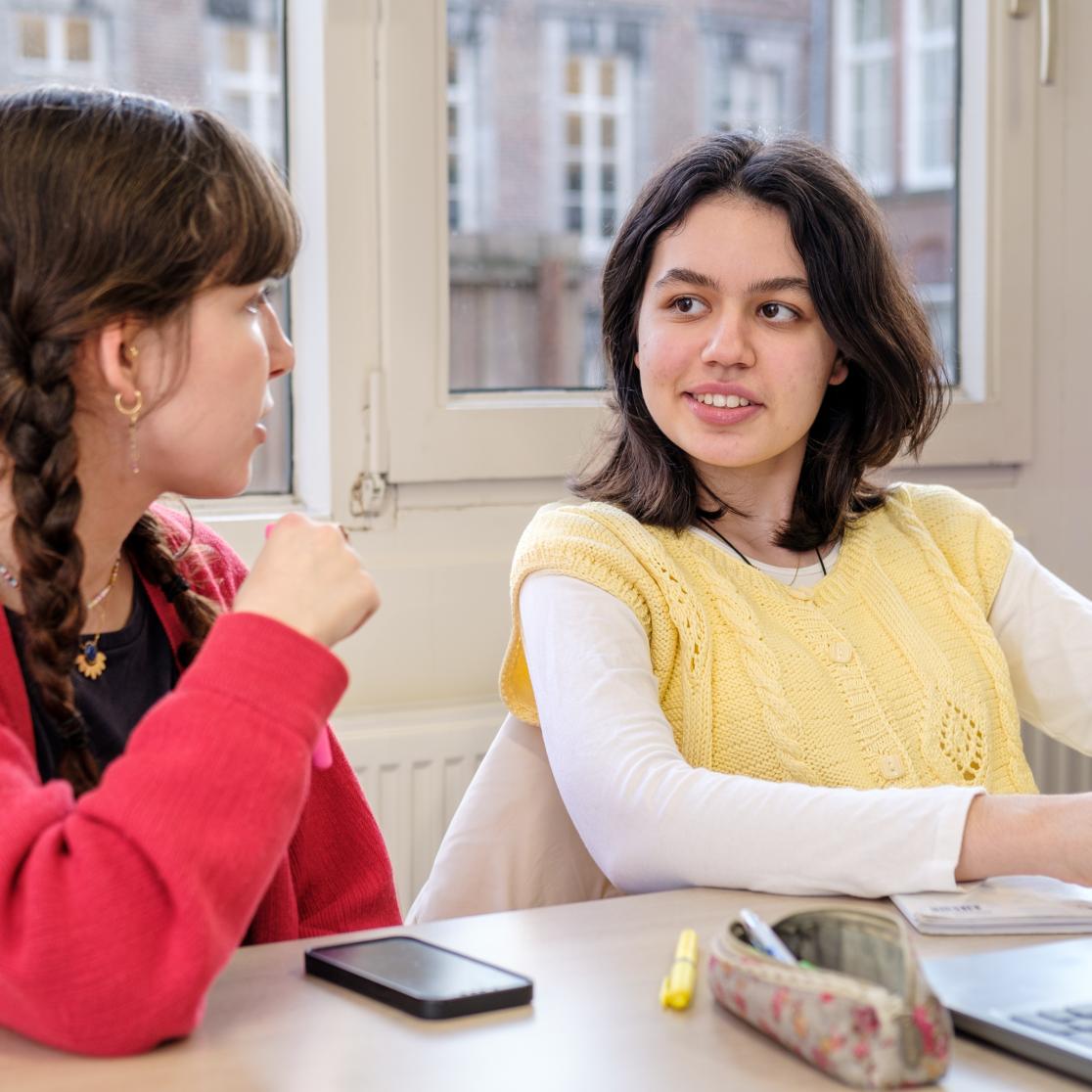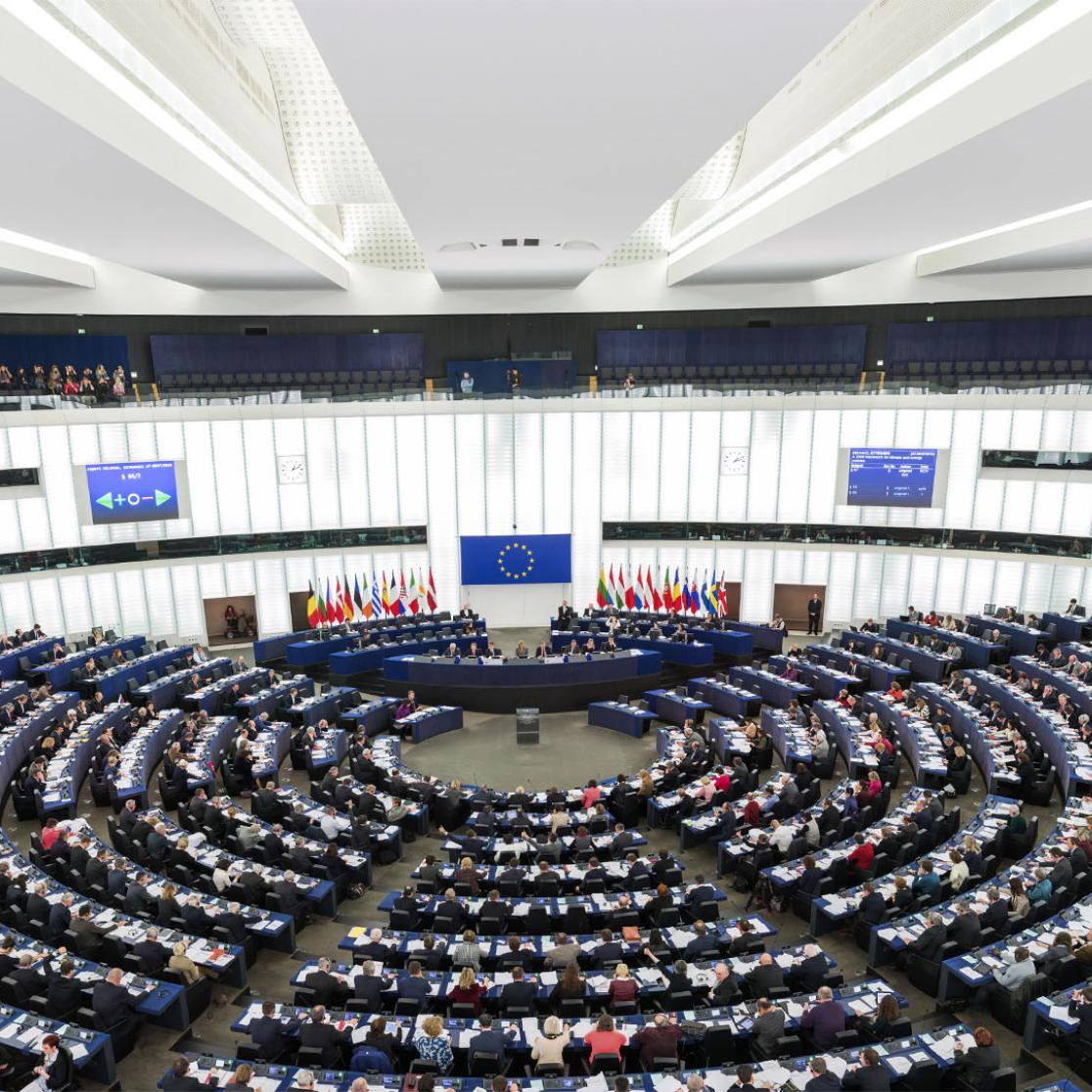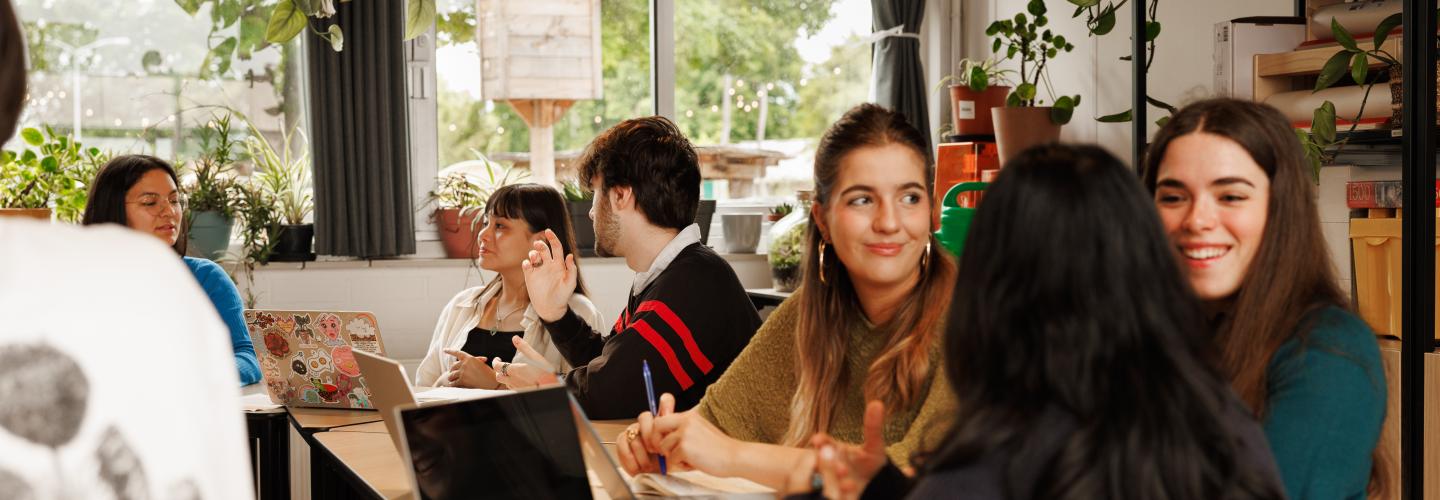Why this programme
Global Studies trains you to understand and develop solutions for complex global issues. The programme is structured around five themes, each of which span a semester of investigation from multiple disciplinary perspectives:
- Environment & Economy
- Migration & Citizenship
- Tolerance & Beliefs
- Peace & Justice
21st Century Learning
The themes are preceded by an introductory semester that sets the basis for your explorations to come by giving you insight into the field of global studies. Within each semester theme, your learning about specific content is complemented by courses on research methods (qualitative and quantitative) and skills (academic, professional, and global citizenship skills), which you will use to dive deeper into thematic content. In your final year, you will put your expertise to the test with the option to pursue a one-month local or international field study, and all students write an interdisciplinary Bachelor’s thesis while simultaneously developing an intervention for a societal problem presented to you by an NGO, government agency, firm or a school. Throughout the programme you will also have the opportunity to teach your fellow students… and sometimes even external partners!
Crossing Borders
Global Studies is all about crossing borders, and not just geographical ones. You will cross disciplinary boundaries by bridging disciplines and eventually conducting an interdisciplinary final thesis, cross Euro-centric perspectives by reading authors from other locations and conducting a local or international field study, and cross the limits of your own comfort zones by leading your own and your peers’ learning experiences in intensive, small-scale tutorials.

Bridging the Disciplines
Complex, global problems require solutions that are rooted in multiple disciplines. Global Studies trains you to integrate knowledge and skills from the natural and technical sciences (environmental science, data science), social sciences (development geography, political economy, governance, law, sociology, economics, international relations and technology studies), life sciences (public health, psychology), and humanities (anthropology, history and philosophy). All semesters and themes are co-developed and co-taught by scholars from at least three disciplines. Studying with these experts, you will:
- Build an understanding of how individual disciplines examine particular questions and phenomenon, including the assumptions they make about complex issues
- Debate how the theories and assumptions of different disciplines can be connected to arrive at a richer view
- Learn and practice research methods that are used by different disciplines to allow you to collect your own data, perform strong analyses, and arrive at relevant conclusions
- Formulate evidence-based advice and recommendations for complex problems based on the insights from different perspectives
- Develop your skill-set as a future professional, academic, and citizen of the world
Perspectives from around the Globe
To ensure that the programme offers a truly global focus in which perspectives from the Global Majority get as much attention as other perspectives, each course includes theories, concepts, and case studies from scholars and settings across the world.
Field Study
Connected to the theme on Peace and Justice, you will have the opportunity to go on a month-long field study, exploring and learning about a local, relevant problem in your chosen destination. Past field study destinations have included Colombia, Mozambique, Cyprus, Uruguay, Thailand, and The Hague. Together with a small group of your fellow students, accompanied by an expert, and hosted by a local partner, you will have the opportunity to study a complex issue, discover local solutions, and practice your own skills as a global citizen.
Bachelor’s Thesis
Your final piece of work in BSc Global Studies is a Bachelor’s Thesis on a topic of your choice — perhaps a deepening and continuation of your field study, a study on a target of the Sustainable Development Goals, or a topic that resonates with the final semester-long theme, 21st Century Learning? Your thesis will integrate expertise from at least two disciplines and serves as a bridge to the next step in your career.
Global Studies students participate in Migration Governance summer school
During the first week of November 2021, 3 Global Studies students were invited to join an international summer school on “Migration Governance at the Local Level” hosted by the University of Applied Sciences of Ludwigsburg, Germany. They enjoyed a really great and well-organised week, full of learning, socialising and networking.
They also went on an excursion to Strasbourg to visit the Council of Europe.

International classroom
The educational model of Global Studies is built around a truly international classroom. You will work together with students with a diversity of cultural and socio-economic backgrounds in and outside the classroom. One of the hallmarks of the Maastricht University educational system is problem-based learning (PBL), where students lead discussion and inquiry in small-scale tutorials. Combined with project work, often undertaken in small teams, the intensive learning you experience in Global Studies is supported by the diverse perspectives of its global student body. This will help you acquire competencies in two of the central aims of the BSc Global Studies: Global Citizenship and Interpersonal Competencies related to intercultural and transdisciplinary communication and understanding.
Problem-Based learning
You will be taught using the problem-based learning (PBL) approach that Maastricht University is famous for. In small tutorial groups with a maximum of 12 students, you will analyse challenging questions and cases. Together with your group, you will set to work on weekly problems, seek further knowledge on the problem and formulate your answers. Instructors only give help as needed, allowing you to develop independence and the problem-solving skills you will need in your career.
This programme will also experiment with digital forms of education within the PBL environment and with the support of Maastricht University’s Institute for Education Innovation (EDLAB). This will give you hands-on experience with the advantages and disadvantages of digitally-mediated teaching and learning methods.
Skills
You will be able to develop skills and competencies in the following domains:
- Methodological: the ability to acquire and apply new knowledge using a diversity of methods and tools
- Social: the ability to deal with other people in a respectful and empathetic way
- Communicative: the ability to create new and maintain existing relationships, to express yourself clearly and precisely
- Personal: the ability to reflect on yourself and develop yourself through effective goal setting
- Scientific: you will have relevant knowledge of academic theories and models
- Professional: you will be proficient in business and persuasive writing, presentation skills, collaborative working, and creative problem-solving
Working with stakeholders
Throughout the programme you will learn methods and skills for working on projects with and for external partners, such as NGOs, government agencies, firms, and schools. This culminates with an applied research project in the last semester in which you will work together with a “challenge owner” on an issue they face. You will practice the academic and professional skills, project-based methods, and knowledge that you will have acquired throughout the programme to analyse the challenge owner’s issue and work together with them to develop a relevant and realistic intervention.
UM and FASoS Campus Tour
Welcome to the FASoS campus tour! In this video, one of our student ambassadors will take you on a journey through our faculty, the inner city, and all the important UM buildings. If you’d like to explore further, we also offer campus tours during our Open Days, Experience Days, and Introduction Days. Enjoy the tour!
